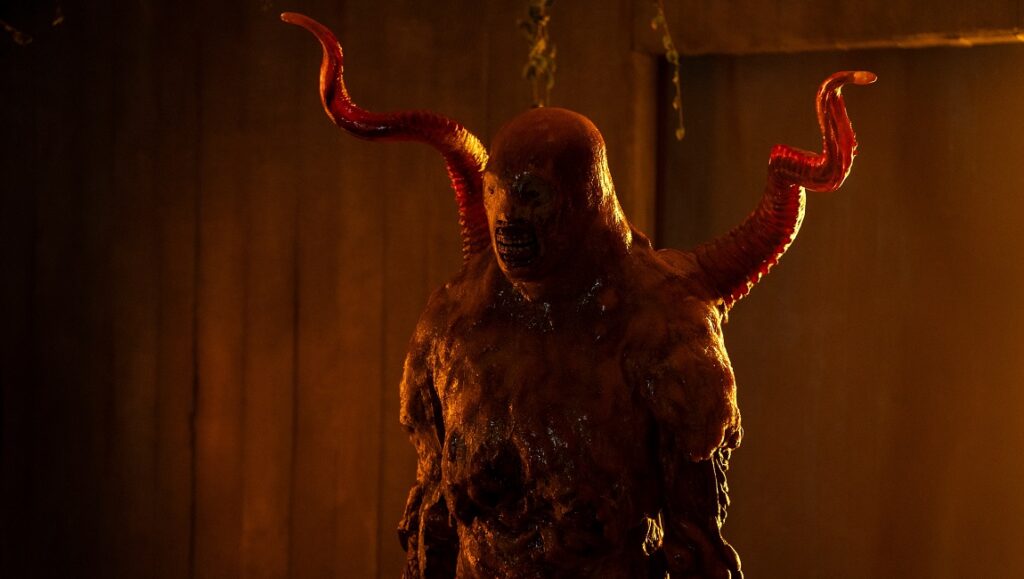Spelled out in a brusque, harried introduction by Cabinet of Curiosities orchestrator Guillermo Del Toro (maybe 10% invested in his Hitchcockian hosting duties), Panos Cosmatos’ “The Viewing” is a cautionary tale, warning against the entitlements of the collector mentality in arch, gruesome fashion. But, in keeping with what we’ve seen from Cosmatos thus far (2010’s Beyond the Black Rainbow and 2018’s Mandy), plotting and theme are mostly working in service of the Greek-American auteur’s pronounced aesthetic, which has anchored and defined each project across his sparse, decade-plus career. This is the case with most of “The Viewing”’s other written elements, with characters and dialogue building from stilted trope and archetype to lend further credence to the production’s chic B-movie stylings, and provide plausible ironic cover by a cast of culty comedians (Eric André, Charlene Yi, and Steve Agee). A dubious “style over substance” proposition in many ways, Cosmatos’ dedication to this singular pursuit of heavy, ominous synths (provided by Daniel Lopatin this time around) and scuzzy analog psychedelia still holds some charm and intrigue that may just carry “The Viewing” over.
Returning to the murky celluloid grain of Beyond the Black Rainbow, after going Arri Alexa mode for Mandy, “The Viewing sends the aforementioned trio of comedic actors (along with Michael Therriault) into the impressive retro-futurist compound of reclusive Illuminati figure Lionel Lassiter (sci-fi icon Peter Weller, inherited from Cosmatos’ filmmaker dad George P. who he worked with on Unknown Origin and Leviathan) who has promised to show them all something beyond belief. Each an expert in their respective fields (Yi a scientist, André a record producer, Agee a fiction writer), Lassiter seems eager to invite these people into his company so as to “collect” them and employ their talents exclusively, but also maybe to help him determine the purpose and origin of a mysterious rock-like object that confounds scientific classification. It’s a familiar yet not unappealing setup that savvily keeps the proceedings to a couple brutalist interiors, and it’s fun to go along with Cosmatos’ vision for a time, but things begin to unravel quickly once he attempts to pull his two narrative strands together. Affording about ¾ of the episode’s 57-minute runtime to talky pulp banter before inelegantly pivoting into Lovecraftian apocalyptic horror, “The Viewing” doesn’t really satisfy, its climax offering some uniquely grotesque imagery that almost acquits the production, but also recasting much of the build-up as meandering and indulgent. Indeed, as initially suggested, Cosmatos’ glossed-up reimagining of late-’70’s grindhouse aesthetics still holds its pleasures and is at its most vividly rendered here, but “The Viewing” isn’t offering much more than a vibe that’s somewhat diminished by the presence of familiar Hollywood faces.


Comments are closed.